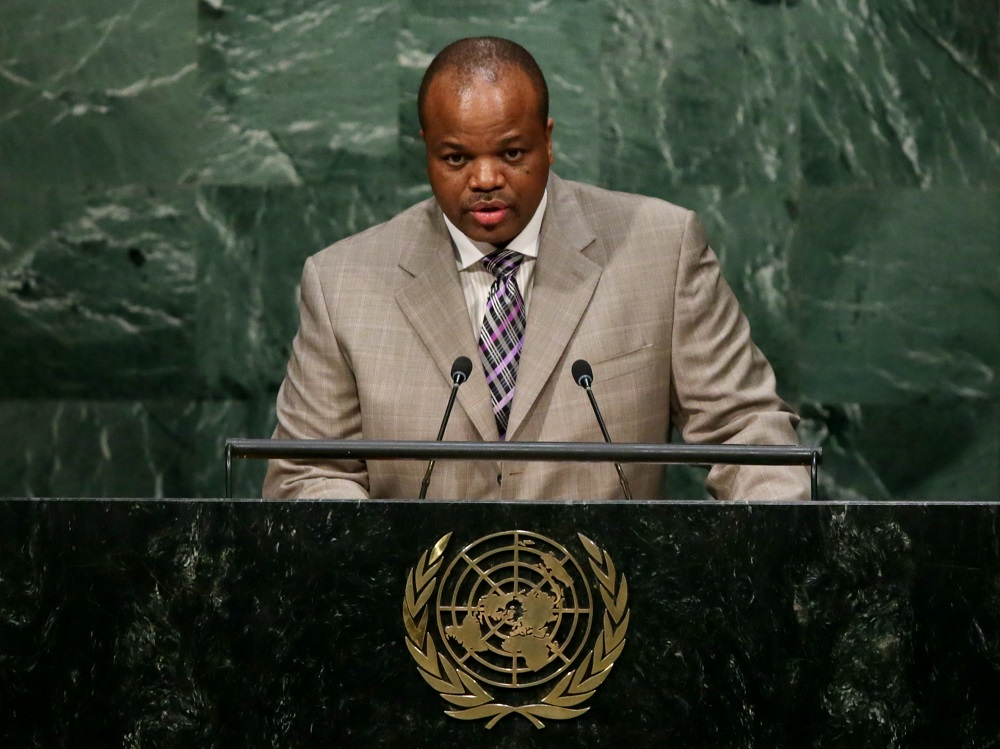An ongoing violent crackdown on protests in Eswatini by the government’s security forces is also affecting the already limited press freedom and safety of journalists in the country. An Internet shutdown is preventing the access to information and making it difficult for journalists to report about the current events.
The International Press Institute today called on authorities in Eswatini to ensure that journalists can report on ongoing civil unrest safely and freely. In the past week, pro-democracy protests in the country have seen both arrests and indiscriminate targeting of protesters by security forces as well as violence by protesters themselves. Meanwhile, journalists have also come under attack. At least two journalists have been shot and injured by security forces while reporting on the protests.
“The situation is very bad; soldiers are on the ground shooting people and all the businesses are closed”, an Eswatini journalist who requested anonymity told IPI. “Reporting in the field is difficult and dangerous as the soldiers are shooting indiscriminately and we are not able to wear our media jackets because it would make us a target for the hostile protesters.”
The journalist added: “There is not much freedom to report as most of the media houses are state owned and even the independent media outlets use self-censorship so that their licences wouldn’t get revoked. The problem is that the government wants to give a beautiful picture to the world instead of reporting what’s really happening in the field.”
Peoples Dispatch reported that two New Frame journalists, Magnificent Mndebele and Cebelihle Mbuyisa, were detained, assaulted and tortured by the Eswatini security forces on July 4 while covering the protests. New Frame’s legal team and lawyers in South Africa and Eswatini were able to get the journalists released, treated in a hospital and safely returned to their reporting base in South Africa.
Eswatini is Africa’s last absolute monarchy and has been ruled by King Mswati III since 1986. Press freedom is severely limited. Independent journalists have long been under pressure in Eswatini and many reporters have had to flee into exile.
“There was already an uneasy relationship between media and the authorities before the protests started, and the civil unrest only heightened the scrutiny towards media by the government”, Nqaba Matshazi, the fundraising and regional campaigns coordinator for the Media Institute of Southern Africa (MISA), told IPI.
“The government is uneasy with the free flow of information. Every time a journalist reports something critical about the government, they and their families are hunted. The government and the King do not want press freedom in the country, because this would expose the underlying corruption and problems in the country”, Matshazi said, underscoring the importance of attention and intervention from the international community. “There is going to be more attacks on journalists if the international community keeps ignoring the situation in Eswatini. The crackdown on journalists, protesters and activists is likely to get even worse.”
According to Human Rights Watch, the series of protests started in May 2021 following the alleged police killing of University of Swaziland student Thabani Nkomonye. The protests escalated again in late June when youth took to the streets demanding democratic reforms. In response the authorities banned all protests and deployed soldiers as well as the police force to disperse the demonstrations. A nationwide curfew was also implemented, and the internet was shut down between June 29 and June 30.
“Without the access to internet the Eswatini government is able to control the narrative. Lack of internet access is making it difficult for the journalists to report about the crackdown to the international audience and put pressure on the government”, Matshazi told IPI. “Eswatini media and citizens are now isolated and left on their own without access to information. As long as the internet is shut down, Eswatini is a dark spot, and nobody knows exactly what’s going on there and what the real scale of the violence towards citizens and journalists is.”
Amnesty International has reported that dozens of protesters have been killed, tortured, detained or abducted by the security forces and more than 150 people have been injured. New Frame reported that the People’s United Democratic Movement, the country’s largest opposition political movement, has documented more than 40 deaths, 1 000 seriously injured and 500 arrested.
In a joint letter with 20 other regional and international press freedom groups, IPI has called on the Eswatini government has to guarantee the safety and security of journalists and media workers in the country and ensure that the internet is not shut down or censored.
